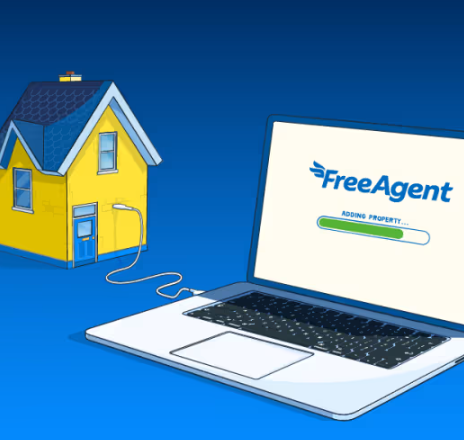Managing rental income and expenses can be a hassle, especially when tax season rolls around. However, with the introduction of Making Tax Digital (MTD) for landlords, the process is becoming more streamlined and digital. This new system from HMRC aims to simplify tax reporting, reduce errors, and ensure timely tax payments. In this guide, we’ll break down everything landlords need to know about MTD, including when it begins, how it works, and what steps you should take now.
What is MTD and How Does It Change Things?
Making Tax Digital (MTD) is part of HMRC’s plan to digitize the UK tax system. Rather than keeping paper records and filing annual tax returns, landlords will now be required to keep digital records of their rental income and expenses. Additionally, they must submit quarterly updates to HMRC using approved software.
The aim of MTD is to make tax management easier and more efficient. These regular updates will help landlords stay on top of their taxes throughout the year, minimizing errors and ensuring tax bills are accurate and paid on time. For HMRC, MTD will reduce mistakes, speed up payments, and offer a clearer view of national tax revenue.
Who Does MTD Apply To?
MTD for landlords falls under Income Tax Self Assessment (ITSA) and specifically applies to individuals or businesses receiving rental income, including sole traders and limited liability partnerships (LLPs) in the buy-to-let sector. If your annual rental income exceeds £50,000, MTD will apply to you starting from April 2026. If your income falls between £30,000 and £50,000, you will be subject to MTD a year later, beginning April 2027.
For landlords living abroad, the rules for non-resident landlords still apply, but these may intersect with MTD in certain situations.
MTD Rollout Timeline for Landlords
Here’s the official schedule for MTD compliance:
- From April 2026: MTD applies to landlords with rental or self-employment income over £50,000.
- From April 2027: MTD will apply to landlords earning between £30,000 and £50,000.
- From April 2028 (expected): Landlords earning over £20,000 may be brought into MTD, though this is yet to be confirmed.
What Counts Towards the Income Threshold?
When determining whether MTD applies to you, it’s important to note that HMRC looks at gross income, not profits. This means they’ll consider the full rental income before deducting expenses, as well as any earnings from self-employment. For example, if you earn £28,000 from rent and £5,000 from freelance work, your total gross income of £33,000 means MTD will apply to you from April 2027.
Can I Start Early with MTD?
Yes, landlords can voluntarily adopt MTD ahead of the official deadlines. This early adoption is available now, and some landlords find it helpful to get familiar with the digital processes before they are required to comply. Early adoption gives you time to adjust and ensures that your system is ready well before the deadline.
The Key Elements of MTD for Landlords
MTD for landlords involves three key components: digital record-keeping, quarterly updates to HMRC, and an annual final declaration.
1. Digital Record-Keeping
Under MTD, landlords must maintain digital records of rental income and expenses. Instead of using paper files or spreadsheets, you’ll need to use HMRC-approved software to keep track of your property business finances. The key records to maintain include:
- Rental income: Record the amount and date of each rent payment.
- Allowable expenses: This includes costs like repairs, letting agent fees, insurance, and property maintenance.
- Digital receipts: No more paper receipts! You’ll need to keep digital copies of receipts, either by scanning or taking photos with an app.
Keeping accurate and up-to-date records is essential for reducing your tax liability.
2. Quarterly Updates
With MTD, landlords must submit updates to HMRC every three months. These reports will include the total rental income received and the total allowable expenses incurred during that period. You don’t need to submit every individual receipt—just the totals. This regular reporting helps both you and HMRC stay on top of tax obligations throughout the year, making it easier to file the final tax return at the end of the year.
3. Final Declaration
At the end of the year, you will still need to submit a tax return, known as the final declaration. This will involve reviewing the quarterly updates, making any necessary adjustments, and reporting any other income. You’ll also be able to claim any tax reliefs available under income tax rules.
Penalties and Compliance Under MTD
HMRC will enforce penalties for non-compliance, including missing deadlines, failing to keep digital records, or submitting incorrect information. The penalties are based on a points system:
- Late Submission Penalties: Each missed deadline results in one penalty point. After reaching a certain threshold, you’ll incur a £200 fine. The penalty thresholds are:
- 4 points for quarterly submissions
- 2 points for annual submissions
- 5 points for monthly submissions
These points expire after 24 months if all obligations are met during that period.
- Penalties for Errors: If HMRC detects errors in your returns, penalties are imposed based on the nature of the mistake:
- Careless mistakes: Up to 30% of the extra tax due
- Deliberate mistakes: Up to 70%
- Deliberate and concealed mistakes: Up to 100%
The best way to avoid penalties is by maintaining accurate digital records.
Practical Steps Landlords Can Take Now
- Check if MTD Applies to You
Confirm whether you fall within the income thresholds for MTD. Remember, HMRC considers your total gross income, not your profits. - Assess Your Current Bookkeeping
If you’re still relying on paper records or basic spreadsheets, it’s time to modernize. Digital bookkeeping will simplify your tax filings and ensure compliance with MTD. - Explore MTD-Compatible Software
Start looking into software options that are compatible with MTD. These tools can help you track income and expenses, scan receipts, and automate updates to HMRC. Choose the software that fits your needs and budget. - Consult an Accountant or Tax Adviser
If you’re unsure about MTD, speak with a tax professional who can help you understand your obligations and recommend the best software for your situation. - Practice Before You Have to Comply
Consider adopting MTD early to get comfortable with the process before it’s mandatory. A tax adviser can help you set up a streamlined digital system.
Conclusion
MTD for landlords marks a significant shift towards digital tax management. While the transition may seem daunting, taking proactive steps now—such as updating your bookkeeping practices and familiarizing yourself with MTD-compliant software—will make the process much easier. The sooner you get comfortable with MTD, the less stressful the transition will be when the deadlines roll around.



